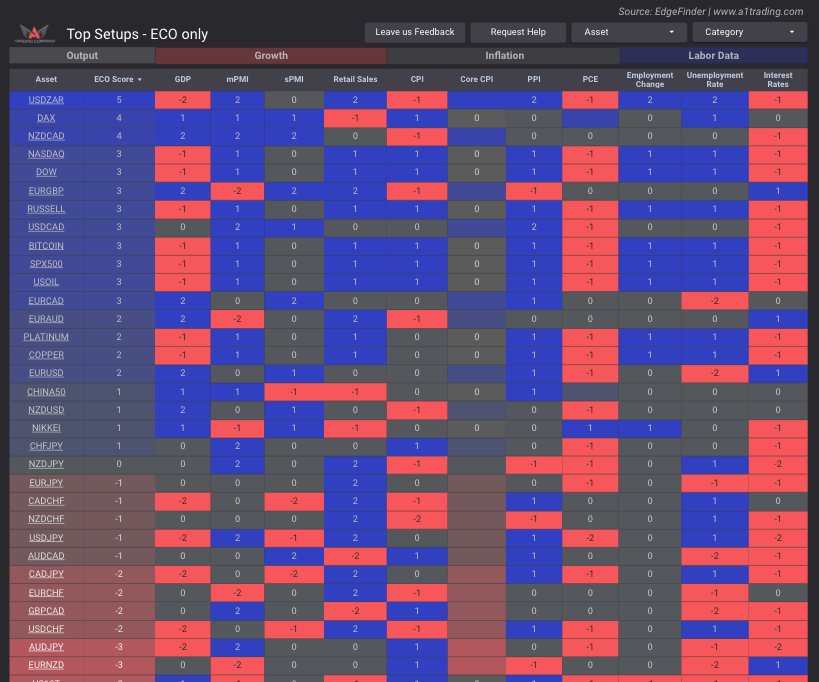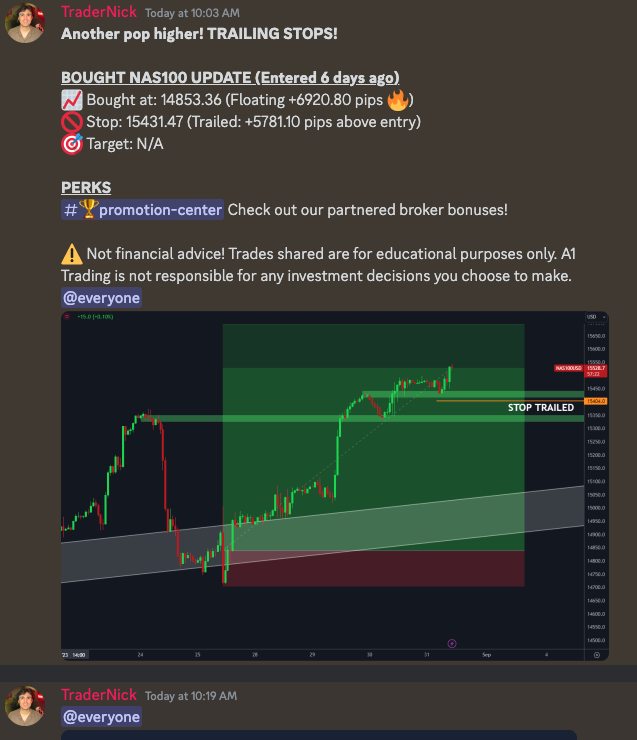S&P 500 holds near highs, but Fed cuts could spark short-term volatility before medium-term bullish momentum resumes.

Recently, I shared a video where I argued that trading psychology is overrated in the trading space. As you might expect, the responses were strong—some in agreement, some in sharp disagreement.
If you missed the original video, I’ll give you the short version here: discipline and emotional control are certainly required in trading, but they’re not the hardest part of becoming profitable. What’s truly difficult is building a strategy with an actual edge—something you can repeat over and over that produces profits greater than your inevitable losses.
Everywhere you look, you hear the same advice: “If you just master your emotions and stop gambling, you’ll be a profitable trader.”
I think this is a dangerous fallacy.
Discipline matters, yes—but if all you do is manage your emotions while trading without an edge, you’re still going to lose. You’ll just lose more slowly.
Let’s say you have a system that wins 60% of the time and loses 40% of the time on a 1:1 risk-to-reward ratio. Even with inevitable drawdowns, sticking with that strategy wouldn’t be psychologically impossible—especially if you kept your position sizes small.
That’s the key: risk small with an edge.
Traders who constantly blow accounts are almost always risking too much relative to their account size. No amount of “discipline” will fix that. If you manage risk and trade with small enough size, the emotional side gets much easier to handle.
This is why I argue that what separates great traders from average ones isn’t psychology—it’s edge and risk management.
Think about a casino. The house always wins in the long run, not because the managers are emotionally disciplined, but because they have two things:
The same is true in trading. A casino manager doesn’t need a trading coach or a mindset guru to keep the casino profitable. They simply let their edge play out over time.
A common pushback I got was: “But what about when you hit a losing streak? That’s psychological.”
Yes, you need the discipline to stick with your plan through losses. But if your risk per trade is small enough, 10–12 consecutive losses won’t wipe you out or cause panic. Again—it comes back to risk management and edge.
Another point critics made was that many traders do well on demo accounts but fail when they move to live accounts. I disagree—most traders actually lose on both. Without an edge, demo or live doesn’t matter.
If you want to trade with confidence, you need proof that your strategy has edge. That’s why backtesting is essential. When you’ve tested your strategy over hundreds or thousands of trades and know it works, sticking to it becomes far easier.
(And on that note, a quick shoutout to Forex Tester—one of the best platforms I’ve used for backtesting and building strategies. Instead of donating money to the markets while “practicing” live, you can build and refine your system in a simulated environment first. Use code NSFTO20 for 20% off Forex Tester Online)
Another interesting comment I saw was about why so many “gurus” and brokers emphasize psychology. Simple—it’s easier to sell.
Telling someone “all you need is discipline” is far more appealing than telling them the truth: that finding edge in the markets is extremely difficult, time-consuming, and requires real research.
Anyone can teach psychology. Very few can teach a true, repeatable trading edge.
To be clear, I am not saying psychology is useless. Discipline is required in trading, just like it’s required to maintain your health, relationships, or finances. But in my experience, discipline is easier to build than edge.
What truly makes or breaks traders is whether they have:
That order matters. Most traders think psychology is holding them back. In reality, it’s usually a lack of strategy and poor risk management.
If you want to trade like a professional, focus less on mindset hacks and more on building a system with edge. That’s what will keep your account growing over the long run.




S&P 500 holds near highs, but Fed cuts could spark short-term volatility before medium-term bullish momentum resumes.
DXY holds near support as traders await FOMC, with three cuts priced and data setting the next move.
Sterling stalls at resistance as soft UK growth data shifts attention to next week’s BoE meeting and balance sheet risks.